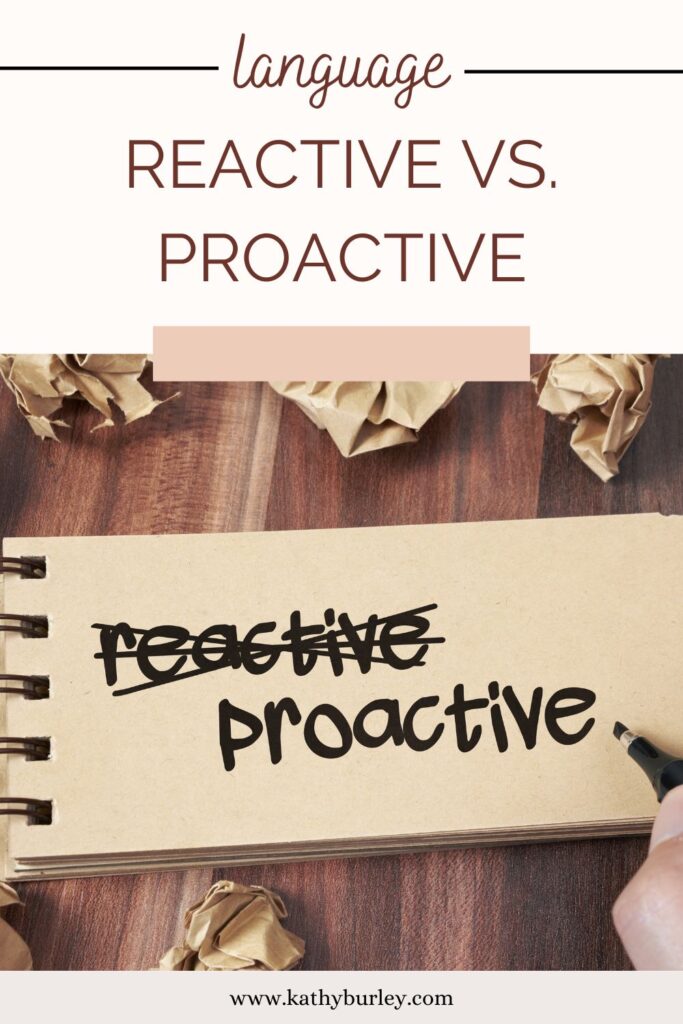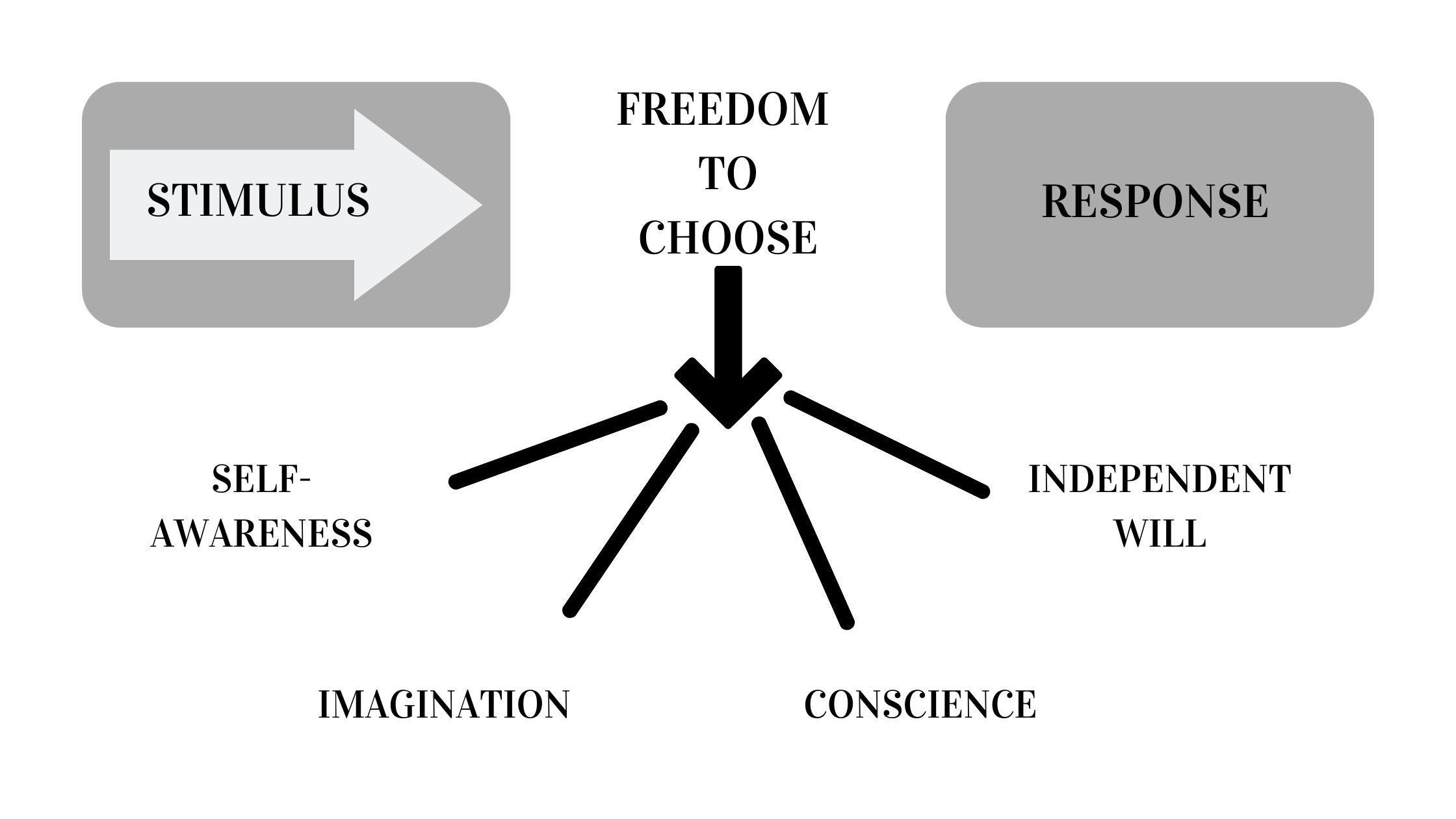The Habit of Proactivity
(The 7 Habits)
For highly proactive people, behaviour is based on values, not feelings.
Proactivity means that as human beings, we are responsible for our own lives. Our behaviour is a function of our decisions, not our conditions.
As I fall hard down this rabbit hole of self-improvement, I am continuing to learn so much about how our actions and our thoughts affect our lives.
Maybe this fact isn’t a surprise to you. For many others, like myself, it’s eye-opening information that is potentially life-changing.
This is why I am going to continue to share the valuable information I learn from ongoing reading and listening to personal development books.
Today’s lesson is brought to you by The 7 Habits of Highly Effective People.
Should this be information that we already know? Probably, yes. However, it simply isn’t. Self–improvement is self-taught and that right there is a problem. Especially for the unmotivated or simply unaware individual (such as myself).
Fear not, though, all is not lost. It is not too late. I’m forty fucking years old and learning this shit with the very real intention of applying it and changing my life.
OK, rant over, let’s get back to our regularly scheduled program, shall we?
Choosing Proactive Language
We can choose how we behave in a given situation, the situation does not have to choose how we behave.
The word responsibility- response-able – is the ability to choose your response.
Highly proactive people recognize that responsibility. They do not blame circumstances or conditions for their behaviour. Their behaviour is a product of their own conscious choice, based on values, rather than a product of their conditions, based on feelings.
Let me repeat this: For highly proactive people, behaviour is based on values, not feelings.
Proactive Model
Because by nature we are proactive people, (news to me), if our lives are a function of conditioning and conditions, it is because we have by conscious decision or default, chosen to empower those things to control us.
Making such a choice is REACTIVE.
Reactive people are also affected by their social environment. When they are treated well they feel well; when they aren’t treated well, they become defensive or protective.
Reactive people build their lives around the behaviour of others, empowering the weaknesses of others to control them.
They are driven by feelings, by circumstances, by conditions, and by their environment.
In contrast, proactive people are driven by values- carefully thought about, selected, and internalized values.
Proactive people are still influenced by external stimuli, whether physical, social, or psychological BUT their response to the stimuli, conscious or unconscious is a value-based choice or response.
In other words, it is not what happens to us, but our response to what happens to us that hurts us.
reactive vs. proactive language examples
Take a look at the chart above. Can you notice the difference between reactive and proactive language?
In my opinion, reactive language is letting the situation control your actions. Whereas proactive language is taking control of a situation and choosing a response.
How To Apply Proactivity In Your Everyday Life
I’m not going to lie, deciding to be proactive is not fucking easy. Especially when you have gone a great deal of time in your life sitting on the sidelines and letting every little situation run your life.
That wouldn’t be my life, now would it?
A good first step to take when choosing to live proactively is to pay attention to your inner voice and your response to certain stimuli.
Now, if your self-talk has a lot of I can’t, I have to, if only…..well then, it’s going to take a bit of getting used to in order to change your response from reactive to proactive.
I have been doing this for a while and I still catch myself daily using the term, I have to….
When I start to say or think that phrase, I stop myself and think, Ok, I don’t have to do this, I WANT to do this, or I can, or I choose to do this.
It takes a lot of practice and self-awareness to change your inner (and outer) dialogue, but with consistency and the will to change, you will be able to do it.
What I have just recently done is completed my personal mission statement. My mission statement is values-based and with time, I am hoping the values in my mission statement will help me make value-based proactive choices.
How to develop a personal mission statement is an article all on its own but the process is well documented in The 7 Habits.
It took me far too long to develop a mission statement because I didn’t know what my values were or even where to start. Once I finally sat down to write it, I found that it was easier than I thought and I can always review and revise if something should change.
Using the companion workbook has also been very useful in actually applying what I am learning through The 7 Habits.
I am still very much a work in progress but by practicing what I learn Every. Single. Day. I am improving.

Self-improvement is a long, forever journey. One quite frankly, that I am thankful to be on. I have witnessed so many improvements in myself from practicing what I read, that I want to share it with the world. Hence, this blog!
Recognizing negative self-talk (reactive language) is a great step to changing your life and developing positive self-talk (proactive language).
Although the side effects are a better relationship with your kids (and maybe spouse…), coworkers, family members, and the delivery person, just to name a few, if you don’t want healthier relationships, just keep doing what you’re doing.
If you’re ready to heal and build up current relationships, take a look in the mirror and really seek to understand how you speak to people (and yourself) and how it can be improved if you are not getting the results you desire.
Keep going, keep going, keep going…
More From This Category

Is It Worth Getting a Lawyer When Separating From an Uncooperative Common-Law Spouse?
Is It Worth Getting a Lawyer When Separating From an Uncooperative Common-Law Spouse?Disclaimer: This is a rather specific topic that applies to my life now. I want to preface this article by saying that this is MY OPINION based on my experience. Every separation is...

As A Man Thinketh By James Allen Book Review
As A Man Thinketh By James Allen Book ReviewAs A Man Thinketh By James Allen is a self-help book that was originally published in 1903. As the title might allude to, it’s not exactly politically correct for today’s day in age, but the messages are clear. When I read...

Navigating Single Motherhood: My Ongoing Journey to Financial Independence and Personal Growth
Navigating Single Motherhood: My Ongoing Journey to Financial Independence and Personal GrowthHi, I’m Kathy. I thought by this age that I would be living the life of my dreams. Instead, I feel more behind than ever. I am a 41-year-old single mom who lives with my...





0 Comments